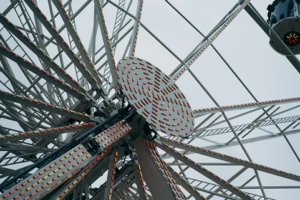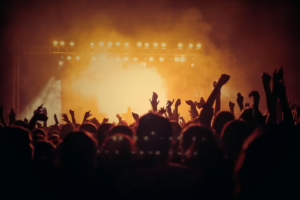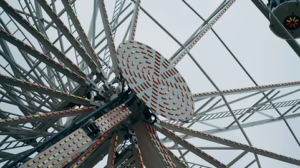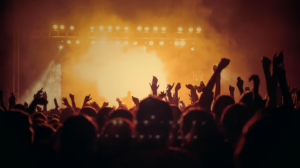Virtual Reality Concerts: The Future of Live Entertainment?
As technology evolves at a breakneck pace, the realm of entertainment is undergoing a significant transformation. One of the most exciting developments in recent years is the rise of virtual reality (VR) concerts. These immersive experiences are changing the way fans engage with artists, blurring the lines between physical and digital entertainment. But are VR concerts truly the future of live entertainment?
What Are Virtual Reality Concerts?
Virtual reality concerts are performances that take place in controlled, digital environments, allowing fans to experience live music in an immersive way. Using VR headsets and compatible devices, attendees can feel as if they are part of the crowd, standing front-row at their favorite artist’s performance, regardless of their physical location. The use of three-dimensional graphics, spatial audio, and interactive elements creates a unique, engaging experience that traditional concerts cannot replicate.
The Appeal of VR Concerts
-
Accessibility:
One of the most compelling advantages of VR concerts is accessibility. Fans who may not be able to travel for live events due to geographical limitations, financial constraints, or health issues can enjoy the same experience as those who attend in person. This democratization of entertainment allows artists to reach a broader audience. -
Enhanced Experience:
VR concerts can provide elements that live performances struggle to deliver. For instance, a VR concert can include stunning light shows, interactive scenery, and even virtual meet-and-greets with artists. These experiences can be customized, allowing fans to feel even more connected to the performance. -
Safety and Comfort:
In a post-pandemic world, the preference for safe and controlled environments has surged. VR concerts allow fans to enjoy the thrill of a live performance without the potential health risks associated with large gatherings. Fans can partake from the comfort of their own homes, making it a safe alternative. - Innovative Revenue Streams:
For artists, VR concerts offer new ways to monetize their performances. With ticketing systems, merchandise sales, and even sponsorship opportunities, artists can explore different revenue models that traditional concerts may not support.
Challenges Ahead
Despite these advantages, VR concerts face several hurdles that must be addressed for broader acceptance and success:
-
Technological Barriers:
Not everyone has access to VR technology. While headset prices have decreased, many potential fans remain unable to experience VR concerts due to financial constraints or lack of equipment. Addressing these issues will be crucial for mass adoption. -
Quality vs. Real Experience:
While VR can simulate the concert experience, some purists argue that it can never fully replace the energy of a live audience and the interaction between artists and fans. The feeling of being in a physical space, enjoying music with others, is difficult to replicate digitally. -
Content Creation:
Creating high-quality VR content can be expensive and resource-intensive. Artists and event organizers need to invest in the right technology and expertise to produce compelling VR experiences, which could deter smaller acts from participating. - Exploring New Formats:
Concerts in VR will require new creative approaches, as traditional performance formats may not translate well to the virtual realm. Innovation will be necessary to develop engaging formats that resonate well with audiences.
The Road Ahead
The virtual reality concert scene is still in its infancy but shows great promise. Companies like Wave, Oculus Venues, and Fortnite have already hosted VR concerts that drew sizable crowds and positive feedback, signaling interest in this new form of live entertainment. Artists like Travis Scott and Lil Nas X have taken the leap, demonstrating the potential of combining music with immersive technology.
As technology continues to evolve, VR concerts may become more sophisticated, integrating augmented reality (AR), artificial intelligence, and even holography. Such advancements could pave the way for hybrid events blending physical and virtual experiences, offering something truly unique to fans.
Conclusion
While it’s too early to say definitively whether VR concerts will replace traditional live performances, they undeniably represent a significant evolution in how we experience music. With their unique advantages and ongoing advancements, VR concerts may one day become a staple in the live entertainment landscape. The future may very well be a harmonious blend of digital and physical, where fans can choose how they want to experience their favorite artists. As this technology matures, one thing is clear: the concert experience is set to become more inclusive, engaging, and innovative than ever before.


























Add Comment